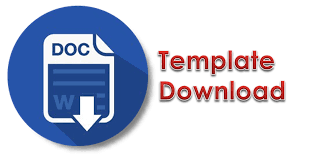Publication Ethics
Educalitra: English Education, Linguistics, and Literature Journal is committed to maintaining the highest standards of publication ethics. We adhere to the principles set out by the Committee on Publication Ethics (COPE). Below are the key aspects of our publication ethics:
1. Allegations of Misconduct
Educalitra takes all allegations of misconduct seriously, including fabrication, falsification, plagiarism, and unethical behavior during the research and publication process. The Editors-in-Chief will follow COPE guidelines to investigate and resolve issues, which may involve contacting authors, their institutions, and funding bodies. If misconduct is confirmed, appropriate actions such as retraction of the published paper or notification of relevant parties will be taken.
2. Authorship and Contributorship
Authorship credit should be based on substantial contributions to the conception and design, acquisition of data, or analysis and interpretation of data; drafting the article or revising it critically for important intellectual content; and final approval of the version to be published. All persons designated as authors should qualify for authorship, and all those who qualify should be listed. The contributions of all authors must be described at submission, reflecting their contributions accurately. This elaboration is based on COPE's principle of Authorship and contributorship.
Contributor Roles:
Conceptualization: Ideas; formulation or evolution of overarching research goals and aims.
Data Curation: Management activities to annotate, scrub data, and maintain research data for initial use and later re-use.
Formal Analysis: Application of statistical, mathematical, computational, or other formal techniques to analyze or synthesize study data.
Funding Acquisition: Acquisition of the financial support for the project leading to this publication.
Investigation: Conducting a research and investigation process, explicitly performing the experiments or data/evidence collection.
Methodology: Development or design of methodology; creation of models.
Project Administration: Management and coordination responsibility for the research activity planning and execution.
Supervision: Oversight and leadership responsibility for the research activity planning and execution, including mentorship external to the core team.
Validation: Verification of the overall replication/reproducibility of results/experiments and other research outputs.
Visualization: Preparation, creation, and/or presentation of the published work, specifically visualization/data presentation.
Writing – Original Draft Preparation: Creation and/or presentation of the published work, explicitly writing the initial draft.
Writing – Review & Editing: Preparation, creation, and/or presentation of the published work by those from the original research group, specifically critical review, commentary, or revision.
3. Complaints and Appeals
Educalitra follows COPE guidelines on appeals to journal editor decisions and complaints about the journal's editorial management of the peer review process. Complaints and appeals should be submitted to the journal's online editorial office. They will be handled promptly and fairly, with the Editor reviewing and addressing the issues accordingly.
4. Conflict of Interest / Competing Interests
Authors, reviewers, and editors must disclose any financial or non-financial competing interests that could influence the research or publication process. Authors must provide a conflict of interest statement, which will be published alongside the article. Reviewers and editors must also declare any potential conflicts of interest to ensure unbiased handling of the manuscript.
5. Data and Reproducibility
Educalitra encourages authors to include additional materials, data sets, and codes that demonstrate the results shown in their final article. Authors should provide access to their data, methodologies, and materials to allow others to reproduce and verify the results. Data-sharing policies will be set at the journal level, encouraging authors to make their data publicly available unless there are confidentiality or security concerns.
6. Ethical Oversight
All research submitted to Educalitra must comply with ethical standards, including obtaining necessary approvals from relevant ethics committees or institutional review boards. Authors must include a statement confirming ethical approval and adherence to ethical guidelines. Research involving potentially hazardous chemicals or procedures must clearly state the details and include appropriate ethical documentation.
7. Intellectual Property
Authors must ensure that their work does not infringe on the intellectual property rights of others. Proper attribution and citation of previous work are mandatory. Any use of third-party materials requires appropriate permissions and acknowledgments. Educalitra respects intellectual property rights and follows COPE guidelines to address any claims of infringement.
8. Journal Management
Educalitra is committed to transparent and effective journal management practices. The Editors-in-Chief and the Editorial Board are responsible for ensuring the integrity and quality of the journal. Policies and procedures are regularly reviewed and updated to maintain high ethical standards and compliance with COPE guidelines.
9. Peer-Review Processes
Educalitra employs a rigorous double-blind peer-review process to ensure the quality and integrity of published work. Reviewers are selected based on their expertise and must provide objective, constructive, and timely reviews. The journal follows COPE guidelines to handle any conflicts of interest or ethical concerns that arise during the review process.
10. Post-publication Discussions and Corrections
Educalitra recognizes the significance of post-publication discussions on published research. Post-publication discussions may be published online after review and are usually accompanied by a response from the original authors. To maintain the integrity of scientific research, Educalitra carries out investigations regarding concerns raised by authors and/or readers. Actions may include publishing a corrigendum, an Editor's Note, an Editorial Expression of Concern, or retracting the article if necessary. The goal is to ensure transparency and maintain the reliability of the published content.
Retraction, Correction, and Withdrawal Policy
Educalitra: English Education, Linguistics, and Literature Journal is dedicated to maintaining the integrity of the scholarly record. Our policy outlines the standards and procedures for correcting, retracting, or withdrawing articles. These actions are undertaken with strict adherence to the COPE guidelines to ensure the reliability of the scientific archive.
1. Article Retraction
Educalitra may retract articles in cases where:
- There is a major scientific error invalidating the article's conclusions, resulting from misconduct (e.g., data fabrication) or honest error (e.g., miscalculation).
- The findings have previously been published elsewhere without proper cross-referencing, permission, or justification (i.e., redundant publication).
- There are ethical issues such as plagiarism or inappropriate authorship.
Retraction Process:
- An article identified for potential retraction is brought to the attention of the journal editor.
- The journal editor follows COPE’s step-by-step guidelines, including evaluating a response from the author(s).
- Findings are reviewed by the Ethics Advisory Board to ensure a consistent approach.
- The final decision to retract is communicated to the author(s) and, if necessary, to relevant bodies such as the author's institution.
- A retraction statement is posted online and published in the next available issue.
Note: Retraction does not equate to authors’ automatic right to retract after publication; it is governed by COPE’s Retraction Guidelines to maintain the scientific record's integrity.
2. Article Correction
Corrections are issued if:
- A small part of a reliable publication contains flawed data or misleading information due to honest error.
- The author or contributor list is incorrect.
Types of Corrections:
- Publisher Correction (Erratum):
For critical errors made by the publishing staff that affect the publication record or scientific integrity.
- Author Correction (Corrigendum):
For important errors made by the authors that affect the publication record or scientific integrity.
- Addendum:
For additions to the article to explain inconsistencies, expand the work, or update the information. The decision to issue a correction rests with the Editor(s), who may consult reviewers or editorial board members. Authors will be contacted for clarification, but the final decision lies with the Editors.
3. Article Removal
Articles may be removed if:
- They are defamatory or infringe on legal rights.
- They are subject to a court order or pose a serious health risk.
Procedure:
- The article's metadata (title and author information) will be retained.
- The text will be replaced with a screen indicating removal for legal reasons.
4. Article Replacement
If an article poses a severe health risk, authors may retract the flawed original and replace it with a corrected version. The retraction notice will include a link to the updated article and a history of the document.
5. Article Withdrawal
Authors are generally not allowed to withdraw submitted or published manuscripts except under compelling circumstances, as withdrawal wastes valuable resources.
Circumstances for Withdrawal:
- Initial version contains an error or was accidentally submitted twice.
- Ethical infringements, such as double submissions, false claims of authorship, plagiarism, self-plagiarism, or fraudulent data.
Procedure:
- Authors aware of such infringements must submit a withdrawal statement to the editorial board, explaining the reasons for withdrawal.
6. Post-publication Discussions and Corrections
Educalitra recognizes the significance of post-publication discussions. These may be published online after review and usually include a response from the original authors.
Handling Post-Publication Matters:
- Investigations are conducted regarding concerns raised by authors and/or readers.
- Possible actions include publishing a corrigendum, an Editor's Note, an Editorial Expression of Concern, or retracting the article.
- If serious issues such as fraud or academic misconduct are confirmed, the author's institution may be informed.
Post-Publication Notices:
- Editor's Note: Indicates an ongoing investigation; not indexed.
- Editorial Expression of Concern (EEoC): Declares serious concerns about the published article's probity; indexed and linked to the paper.
Educalitra is committed to transparency and maintaining the highest ethical standards in publishing to foster a trustworthy and credible academic environment. By following COPE guidelines, we ensure the reliability and integrity of our scholarly record.







